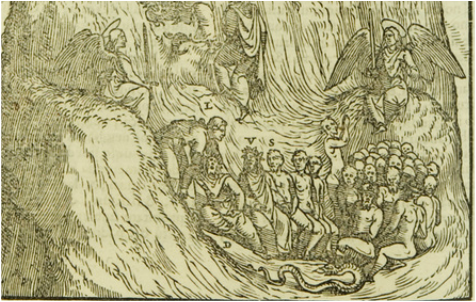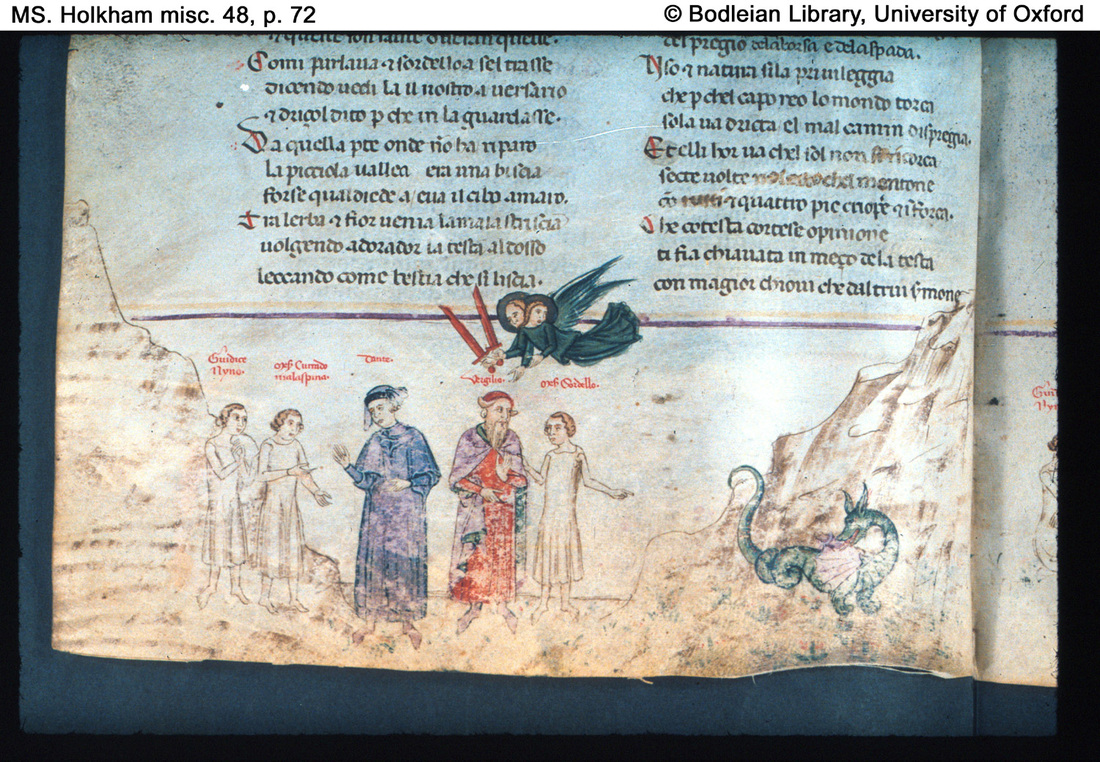One tends to forget the beauty and power of Dante’s poetry while trying to unravel all the symbolism, history, politics and theology of this great work. It takes something like the opening lines to Canto 8 to remind us that Dante the Poet will simply take one’s breath away through sheer lyric beauty. Canto 8: 1-21 has been admired throughout history. Indeed we need reminding time and again that there are parallels of powerful poetry in every Canto and in all the sections of the Commedia, not just the harsh images, soulless evil and scatological humor in the Inferno. We miss more that 75% of the beauty, power and insight of Dante when we read only the Inferno. Shame on the Literature Depts of our schools who give only selections of Inferno to their students!
When reading Dr. Shaw Prue of University College, London, who writes on Dante, I was reminded of what Seamus Heaney said when defining the power of poetry. He called it “forcibleness . . . the attribute that makes you feel the lines have been decreed, that there has been no fussy picking and choosing of words but instead a surge of utterance.” While Dante the Poet is obviously aware that he is creating a legacy of beauty, there are very few times when one can see a blatant attempt to be clever or cute. What we have here is that which rings true and pure. If I might paraphrase Psalm 12:6
“The words of [DANTE] are pure words, Like silver refined in a furnace of earth, Purified seven times.”
Indeed, it is instructive to compare the opening stanza’s in the Hollander translation with Lord Byron’s adoring attempt to emulate this piece in Don Juan.
1 It was now the hour that melts a sailor's heart
2 and saddens him with longing on the day
3 he's said farewell to his belovèd friends,
4 and when a traveler, starting out,
5 is pierced with love if far away he hears
6 a bell that seems to mourn the dying light,
7 and I began to listen less and fix my gaze,
8 intent upon a soul who suddenly stood up
Byron translated these lines in Don Juan (canto iii, stanza 108), adding a concluding couplet to round off his stanza:
Soft hour, which wakes the wish and melts the heart
Of those who sail the seas on the first day
When they from their sweet friends are torn apart,
Or fills with love the pilgrim on his way
As the far bell of vesper makes him start,
Seeming to weep the dying day’s decay.
Is this a fancy which our reason scorns?
Ah, surely nothing dies but something mourns.
[Shaw, Prue (2014-02-10). Reading Dante: From Here to Eternity (p. 150). Liveright.]
I agree with Dr. Shaw that Dante is cleaner but I also enjoy Byron’s own take on this reflection of the sensual closing of day with the recognition that in any journey, there will be reflections on what is being left behind in order to move ahead.

Never Do Today What You Can Put Off Till Tomorrow
We must also remind ourselves who exactly is in this place, for we are not yet in Purgatory proper. Yes, these kings and people of power in these last few Cantos will ultimately make it to Paradise, but they must first wait. They must wait and learn here because they made God wait. Yes, yes, they felt good about themselves because many of them were out doing good for others, or for the church, or for their political party, etc. But truth to tell, they were at heart, serial procrastinators. I know many people like this, and I’ve been caught up in one or two frantic, last minute flurries by dear friends who put off preparing a brief until the 12th hour, or had an Emmaus talk to give but continually waited for inspiration rather than trudging through the outlines with perspiration and dedication. There seems to be many of these folk out there. While I was the odd duck who began reading all the texts the first week of class, and prepared homilies six weeks ahead so I could live with the text and research, make no mistake that in other areas of my life [repairing the backyard fence, mowing the lawn, etc.] I was as fierce a procrastinator as the rest.
Yet, Dante the Poet and Dante the Pilgrim seem to embody both sides of this issue: inspiration and perspiration. Virgil will whack Dante the Pilgrim to get him to climb and scramble when it seems too hard, or when he wants to stay and observe. Perspiration is needed at times. Dante the Poet, as in this opening lays out such beauty that one’s heart will break and the words, in fact, seem as though they were given from sheer inspiration. But truth to tell, surely Dante used both to create this greatest of pieces of literature. I think, indeed, that we are all called on this walk of faith through this world and the next, being lifted, being urged forward by both sides of the coin: inspiration and perspiration.
Hence, we come up against the quotidian demands of Purgatory: time matters. Perspiration and hard work will be required for we indeed are moving toward a goal. There are places in Dante’s universe where time does not matter. In fact, two-thirds of the Dante’s universe fit this definition, but in one [Inferno] all that matters is self and in the other [Paradiso] all that matters is God. Here in Purgatory, both inspiration and perspiration are needed to empty one of Selfishness and fill one instead with God. This is especially true for these souls waiting outside the doors of Purgatory: they had no time for setting aside their own agendas in order to care for the other. They are now learning to sing together, to pray together, to trust God’s angels to protect them while they grow into a shared community that moves slowly, surely, to the place of learned love.


 RSS Feed
RSS Feed
